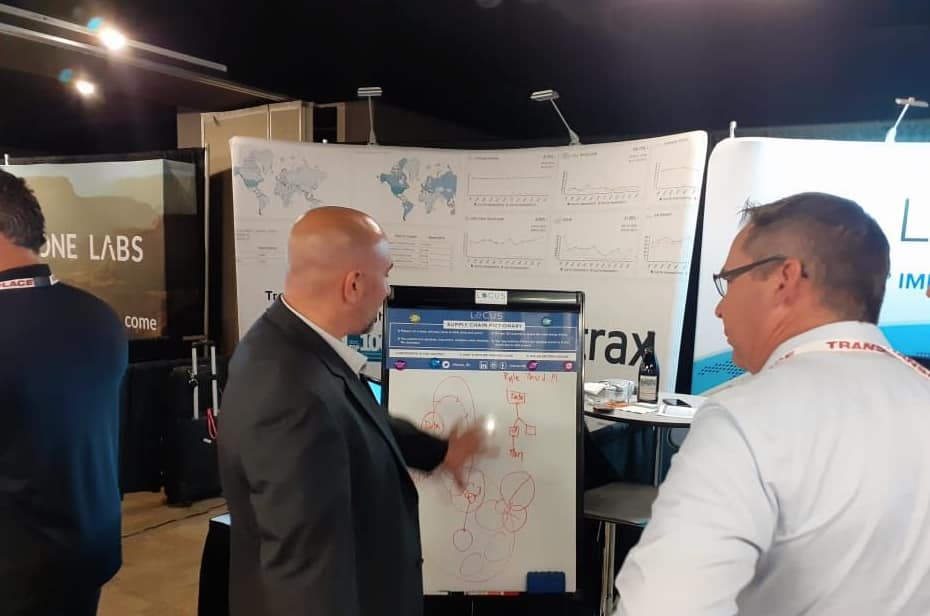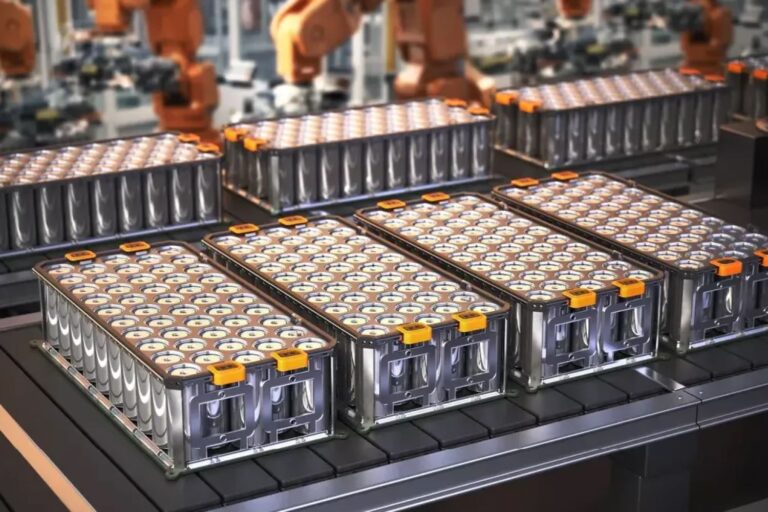Logistic 101: Technology Know-How for Startup in Denver
The Increase of GPS Accuracy and GPS III in Denver
As a startup in Denver, the basic knowledge about GPS application might be a good start.

GPS or Global Position System is certainly familiar for everyone. However, if you don’t pay attention, you might not notice the changes that have drastically occurred throughout the last decade. It is a more extensive scope of capacities and functions; further boosting the efficiency of supply chains.
And as a startup in Denver, why should you know about it?
“Colorado has become the center of gravity for the next generation of global positioning technology — GPS III — which is expected to deliver three times as much accuracy, three times as much power and provide users worldwide with dramatically improved coverage from sea to mountain valley”_The Denver Post. The satellite was successfully launched December 23rd 2018.

In terms of the enhanced accuracy, Peter O. Large, vice president at Trimble specializing in civilian applications based on precision GPS, said that now farmers can “guide farming machinery to within centimeters”. And now with more power, GSP can penetrate thickly covered areas and reach remote locations. Just imagine how that will impact on the logistics industry regarding the act of managing trucks and increase trips’ efficiency.
By the utilization of GPS III, now managers can track their shifting vehicle in real-time data, which varies from the traffic information to avoid congestions, geofencing, fuel level to drivers’ work-hour tracking. Besides that, the system also gives reports about your trucks’ condition for preservation activity if needed.
All the more reason to adopt this technology as soon as possible, right?
Autonomous Trucks and Drones
Autonomous goods transportations have been leading the trend for several years. Autonomous trucks and Drones are on-road and aerial vehicles that, by the use of radar, Lidar, sonar, GPS, odometry and inertial measurement units, are capable of sensing its environment and moving with little or no human navigation.

Despite the more and more common use of them in warehouses, I believe it would take some more time for them to be used as a part of outbound logistics like on freeways perhaps, considering the various environmental differences.
But the big question is: How long is “some more time”? Because as a newcomer in every type of industry, the story is always the same: Catch up or be left behind. So you should keep a close eye on this trend.
Some worth-mentioned attempts are Volvo’ self-driving truck in Beijing, China, The Google Car prototype, and there is Amazon’s announcement about their future delivery method in which packages are brought up to the doorstep by drones called Amazon Prime Air.
However, all of the above are still in the testing stage, but in Denver, one kind of self-driving on-road public transport has been launched successfully- the EasyMile shuttle.
So it’s clear that self-driving car in your area is already in reality, it would not be long before the technology is integrated into the logistics system, and whoever captures this trend will gain enormous advantages. Would you be the one?
Robot and the Internet of Robotic Things
Robots are commonly used in warehouse and storage facilities to organize and transport products (Intralogistic). Don’t be confused; Robots are nothing like automated machinery. They are equipped with the ability to carry out a complex series of movements fast and 100% automatically which makes their application in the logistics process perpetual.

The “Big Guy” Amazon had set a high standard in the application of Robotics back in 2012 when they acquired the Kiva robots, now known as Amazon Robotics, drastically altered the appearance of this industry and build up a high wall for startups to compete with them. Is your business idea good enough to beat their dominance?
But long gone was the day of only Robotics application. The world is now ready for the 4.0 Industrial revolution which bridged the gap between Robotics and the Industrial Internet of Thing theory and created The Internet of Robotic Thing (IoRT) where data is not simply transmitted from one device to another, but these data are also analyzed and the best course of action is automatically executed. We can see the whole logistic procedure becomes something similar to a human brain where there are senses to receive information; then that information is intelligently analysed, and decide on the best solution.
So that is a gap not only your startup in Denver, but also every Logistics company should notice to take the step ahead!
In research of 25 most influential robotic manufacturing company, in terms of a startup in Denver, Colorado, Canvas Technology would be your most favorable choice since the proven good quality, specialty, and close proximity (Boulder, Colorado). Another company that is well-known for their logistic robots is Vecna Robotics (Cambridge, Massachuset).
Related post: Make Your Warehouse “Smarter” with Internet of Things
Radio Frequency Identification (RFID)
The RFID technology is certainly not a stranger to Logistics companies nowadays because of the world-wide adoption in warehousing. Still, it’s worth to refer to as it lies in the heart of a high-tech Warehouse.
This application is a mainstream labor sparing process for organizations to streamline their warehousing procedure. Different kind of sensors or tags are embedded into the package as it moves across the stage to collect data about location, condition, and the surrounding environment, then report back to managers to control the system and work up solutions if any problems turn up.
Transportation Management Systems (TMS) and Transportation Management Cloud
A transportation management system (TMS) is a subset of supply chain management (SCM) that provide the user with a much more simpler and effective method of route planning, load building, operation execution, carriage audit and payment, package visibility and optimizing the physical movements of goods.
The ultimate goals of utilizing a TMS system are to increase shipping efficiency, cut down costs, gain real-time supply chain visibility, thus enhance customer service.
The use and adoption of transportation management systems (TMS) are expected to climb in 2018 and beyond, says Bridget McCrea of Logistics Management.
Then again, as new technology makes their arrival, the integration of them is unavoidable, creating a brand new application known as the Transportation Management Cloud. The Cloud makes sense for TMS as it offers its users the tools to better operational planning, reduce delay in execution, enhance carrier sourcing, allow multiple accesses for an overall view, thus give a more sophisticated experience of TMS.
Here are some popular providers of TMS technology you should consider for your startup in Denver and their products’ most prominent aspects.

A Small Message for Your Startup in Denver
The logistics industry in your neighborhood are highly competitive due to experience and long-term market share domination by big names, and as a startup in Denver, you need to do things in a smarter and more effective way. Technological innovation opens a big opportunity for new entrances if we are quick and ready to adopt new ways of operating. Contact us to capture that opportunity.









